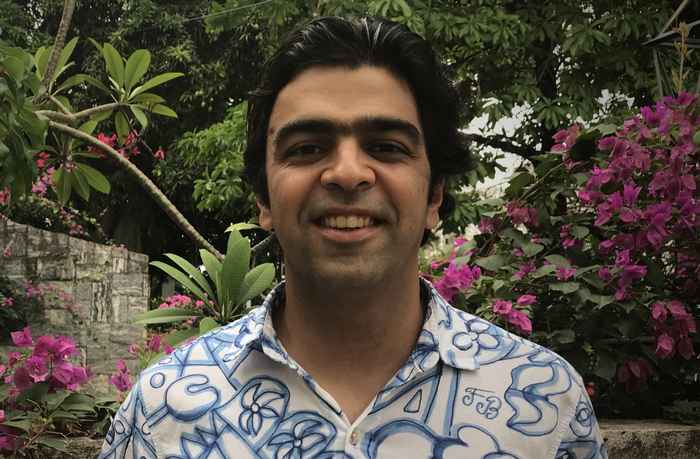'IAS multiplied my intellectual power'
Interview with IAS fellow Fernando Nóbrega Santos
16 June 2022

Nóbrega Santos has been a researcher at IAS since February 2021. He comes from a truly interdisciplinary science background: a theoretical physicist by training and an applied mathematician by work, currently focuses on algebraic topology and information theory to better understand the human brain. With the use of those disciplines, he seeks to represent and understand the complexity of a hyper-dimensional representation of data. However, his work wouldn’t be possible without the involvement of fellow researchers. Seeing the importance and interest in the topic, Nóbrega Santos and Quax decided to create an online workshop to explore the most promising methodologies for mapping complex systems onto hypergraphs, namely algebraic topology and information theory. The workshop gathered 10 of the most prominent scholars in this field worldwide.
Nóbrega Santos: 'Bringing all these scholars together in-person would have been impossible due to COVID, but all experts were eager to join online and IAS staff offered a great environment to make this happen. So we turned difficulty into an opportunity.'
As Nóbrega Santos claims, he would have never been able to bring all these people together to explore the complexity of hypergraphs, if not for COVID. 'I of course prefer life without COVID,' says Nóbrega Santos. 'But the complexity of the research required input from many disciplines and COVID allowed us to simultaneously reach all relevant scholars online. Therefore, the fellowship at IAS allowed me to contact researchers who were keen to work on this crucial topic, but knew it was too difficult to do it alone.'
The online kick-off lecture presented Nóbrega Santos’ research agenda on high-order interactions in complex systems and led to a further series of events. The first lecture showcased the problem, the second event was a workshop that gave space for scholar brainstorming, and the further follow-up lecture series covered algebraic topology, information theory, and how to merge the two disciplines.
Currently, Nóbrega Santos focuses on finalizing papers that attempt to put the answers to fundamental questions into practice. He appreciates how participants of the IAS organized events have become collaborators and even co-authors of his work.
Reflecting on his experience, Nóbrega Santos also highlights the importance of IAS in multiplying his intellectual power. 'IAS provided us with a scientific hub, think-tank-like environment, in the sense that I could interact with great scientists that motivated me to be a great scholar in my field,' he says. 'IAS staff promoted the events in my field, which was fundamental to turn these events into a success. Thanks to IAS I was able to foster this important interdisciplinary research that many scholars thought of doing, but could not tackle individually.'